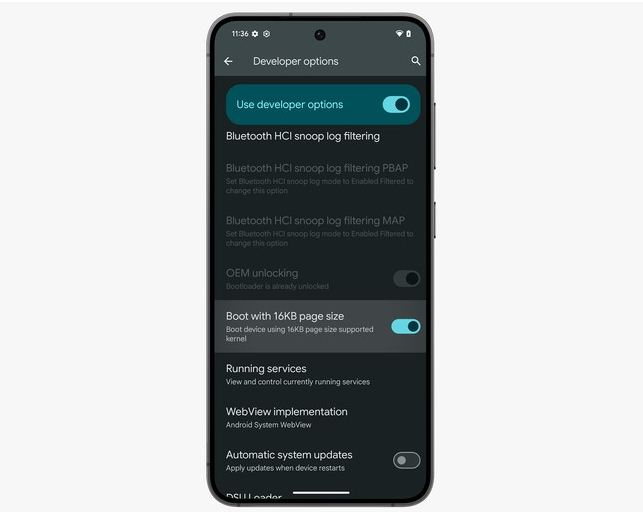Google is preparing a major change to Android’s memory management. In a future update, the operating system will support memory blocks of up to 16 KB. This change should boost the platform’s overall performance while having only a slight impact on RAM usage.
Please follow us on Facebook and Twitter.
Smartphones and tablets divide memory into small blocks called “pages,” which help control and protect the system. Most devices currently use a default page size of 4 KB. However, Google seems committed to adjusting this setting to enhance Android’s performance.
According to Google, using a larger page size in the operating system could increase overall performance by up to 10%, though RAM usage might rise by 9%. Google detailed that with 16 KB pages, users can expect:
- An increase in application launch speed of about 3.16%, with some applications showing gains of up to 30%.
- A reduction in power consumption by approximately 4.56% during application startup.
- Faster camera application performance, with startups averaging 6.6% quicker and reopenings (i.e., reopening the app without closing its process) averaging 4.48% faster.
- A 1.5% faster system startup.
Android 15 Redesigns Memory Management

With Android 15, Google redesigned the operating system to support various page sizes. This change makes it independent of any specific page size.
Developers will need to recompile their apps to support 16 KB page sizes. However, Google notes that the same app binary can run on devices with both 4 KB and 16 KB page sizes.
This memory management change is now available as a developer setting in Android 15 QPR1 Beta 1, which is initially rolling out to the Pixel 8 and Pixel 8 Pro. This allows developers to adjust their apps to support the new 16 KB page sizes.
16 KB pages will be enabled for end users in the “near future.” Google says that no devices currently support a 16 KB page size, but it expects the adoption of this new technology to align with the trend of devices launching with increasing amounts of RAM.






